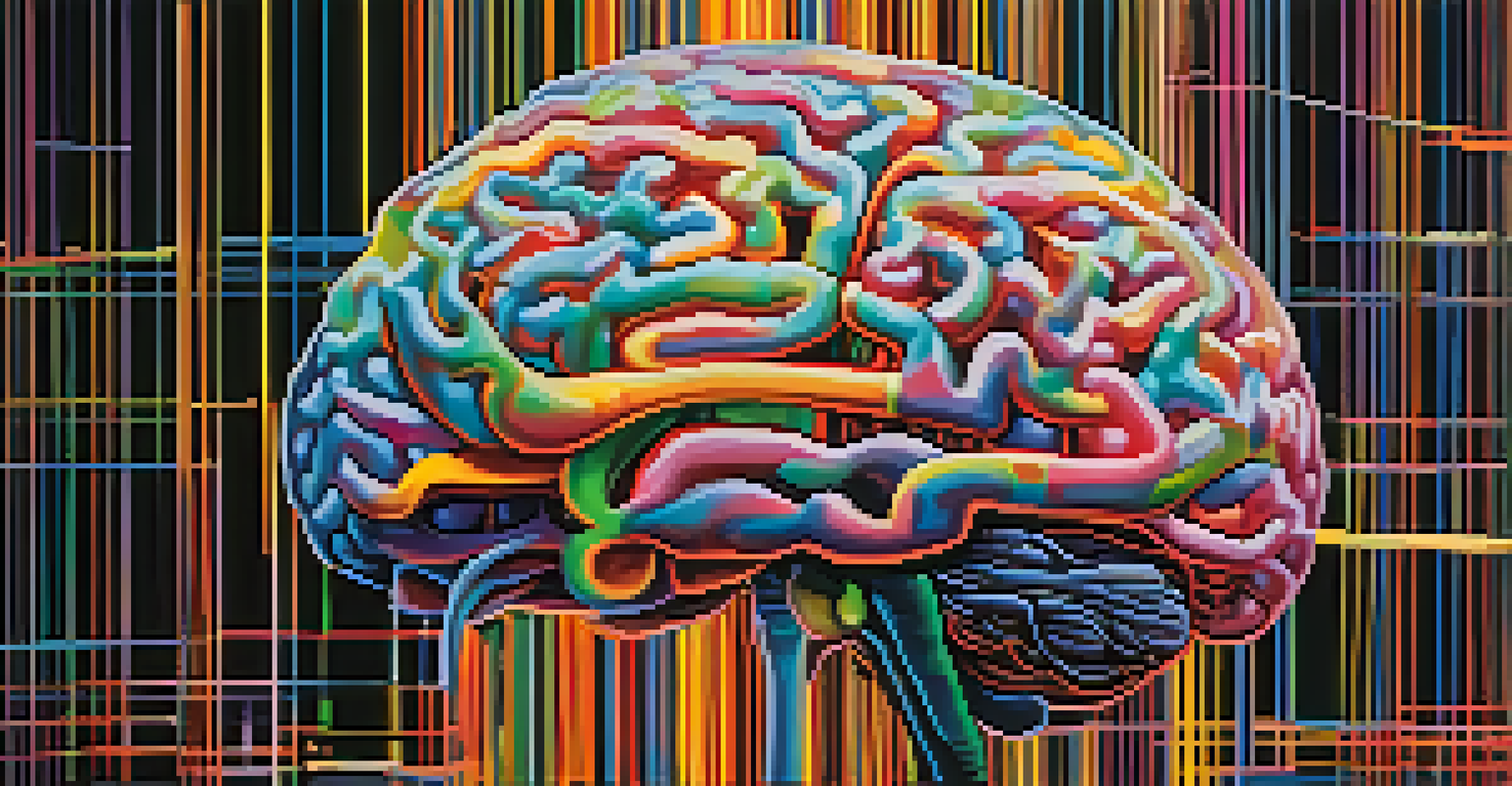The Neuroscience of Entheogens: Enhancing Empathy in Humans

Understanding Entheogens and Their Impact
Entheogens are psychoactive substances often used in spiritual or religious contexts. These compounds can alter perception, mood, and cognition, leading to profound experiences. Historically, cultures around the world have utilized entheogens in rituals to foster connection and insight.
Psychedelics can help us confront our feelings, leading to greater empathy and connection with others.
Recent interest in the neuroscience of entheogens has revealed their potential to enhance empathy. By affecting brain regions associated with emotional processing, these substances can help individuals experience feelings more deeply. This has sparked curiosity about their therapeutic uses in mental health and personal development.
For example, substances like psilocybin, found in certain mushrooms, have shown promise in clinical studies, revealing their ability to facilitate emotional breakthroughs. Participants often report feeling more connected to others, which suggests that entheogens could play a role in healing social disconnection.
The Role of Neurotransmitters in Empathy
Neurotransmitters are the brain's chemical messengers that influence mood and behavior. Among these, serotonin and oxytocin have been linked to feelings of empathy and connection. Entheogens often interact with these neurotransmitters, potentially enhancing emotional experiences.

For instance, when psilocybin increases serotonin levels, it can lead to heightened emotional sensitivity. This sensitivity may allow individuals to resonate more with the feelings of others, fostering greater empathy. Additionally, oxytocin, known as the 'love hormone,' plays a crucial role in bonding and trust, which are essential components of empathy.
Entheogens Enhance Empathy
Entheogens can alter emotional processing, fostering deeper connections and understanding among individuals.
Thus, by modulating these neurotransmitters, entheogens might help people feel more empathetic toward one another. This understanding opens the door to exploring how such substances could be used in therapeutic settings to improve interpersonal relationships.
Exploring the Default Mode Network
The Default Mode Network (DMN) is a network of brain regions active when we are at rest and not focused on the external environment. This network is linked to self-referential thoughts and social cognition, making it crucial for empathy. Entheogens have been shown to alter the activity within this network.
The experience of interconnectedness can foster compassion and understanding in a way that traditional therapies may not.
Research indicates that entheogens can reduce DMN activity, leading to a sense of ego dissolution. This experience often results in a feeling of interconnectedness with others, which can significantly enhance empathetic responses. By quieting the self-focused thoughts that typically dominate our minds, individuals may become more attuned to the emotions of those around them.
This phenomenon suggests that entheogens might provide a unique pathway to foster empathy. By diminishing the boundaries of self, they allow people to step into the shoes of others, promoting understanding and compassion in a way that traditional therapies may not.
The Influence of Entheogens on Emotional Processing
Emotional processing refers to how we recognize, interpret, and respond to our feelings and those of others. Entheogens can significantly alter emotional processing, often leading to more profound insights and connections. When emotions are processed more deeply, empathy can flourish.
Studies have shown that individuals under the influence of entheogens often experience heightened emotional responses, which can help them confront and understand their feelings. This deep dive into one's emotional landscape can lead to increased empathy toward others who share similar struggles.
Neurotransmitters and Empathy
Substances like psilocybin interact with neurotransmitters such as serotonin and oxytocin, potentially increasing feelings of empathy.
For example, someone dealing with grief may find clarity and understanding through an entheogenic experience, making them more compassionate toward others experiencing loss. This shared emotional understanding is vital for building empathetic relationships.
Therapeutic Applications of Entheogens
The therapeutic potential of entheogens is gaining traction in mental health fields. As researchers explore their effects, there's a growing interest in how these substances might facilitate empathy in therapy. This could be particularly beneficial for individuals struggling with issues like depression or anxiety.
Therapists have begun integrating entheogens into sessions to help clients process trauma and build emotional connections. The heightened sense of empathy experienced during these sessions can lead to breakthroughs in understanding oneself and others, enhancing the therapeutic relationship.
For instance, in a controlled setting, a patient might use psilocybin to connect with their emotions and, in turn, develop greater empathy for those around them. This approach not only aids healing but also promotes a sense of community and understanding.
The Risks and Considerations of Entheogenic Use
While the potential benefits of entheogens are compelling, it's essential to approach their use with caution. Not everyone will have a positive experience, and the context in which these substances are consumed plays a crucial role. Factors like setting, mindset, and individual mental health history are significant.
For example, someone with a history of mental illness may experience adverse effects when using entheogens. Therefore, it's vital to have proper guidance and support, ideally within a therapeutic setting, to navigate the complexities of these experiences safely.
Therapeutic Uses of Entheogens
The potential therapeutic applications of entheogens in mental health settings are being explored to help improve empathy and emotional connections.
Moreover, the legal status of many entheogens can pose additional challenges. As the field evolves, it's crucial to stay informed and advocate for responsible research and usage to unlock their full potential while minimizing risks.
Future Research Directions in Neuroscience and Empathy
As interest in the intersection of entheogens and empathy grows, so does the need for further research. Scientists are beginning to explore how these substances can be utilized not just for personal growth but also for broader societal benefits. Understanding the mechanisms through which entheogens enhance empathy could pave the way for innovative therapies.
Future studies might focus on specific populations, such as those with social anxiety or PTSD, to determine how entheogens can facilitate emotional healing and connection. Additionally, exploring different types of entheogens and their unique effects on empathy can provide valuable insights.

Ultimately, continued research holds the promise of integrating these ancient substances into modern therapeutic practices, potentially transforming how we understand and foster empathy in our increasingly disconnected world.